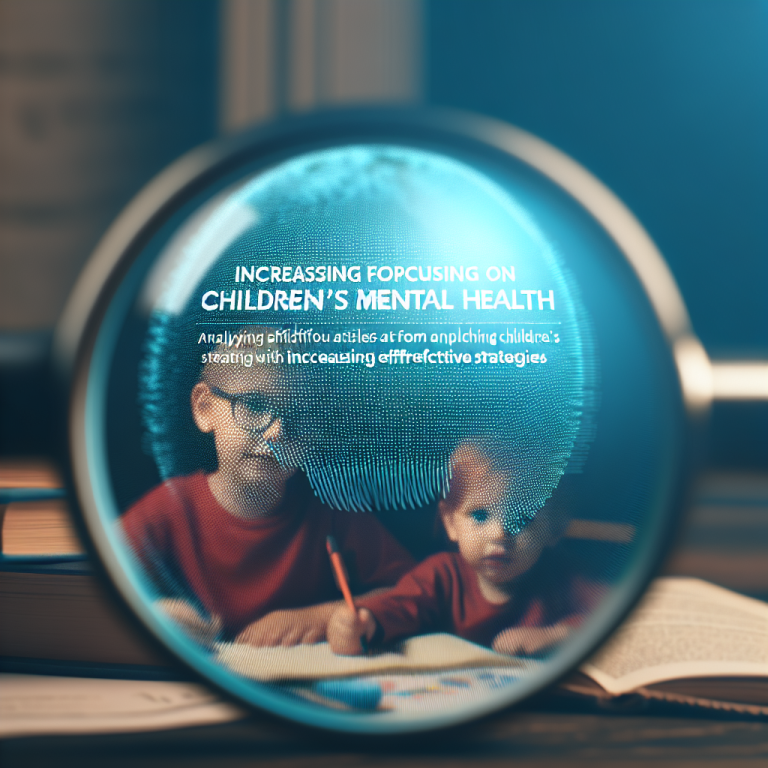Child Mental Health Care: Assessing the Impact of Trend-Based Sales Strategies
Child mental health care is not just a simple concept but also a field with great business potential. In modern society, where children face various pressures from studies, social media, and other factors, enhancing mental health has become a top priority. This article delves into assessing the impact of trend-based sales strategies in child mental health care, providing valuable insights for businesses operating in this field.
Child Mental Health Care: The Child Mental Health Care Market
The child mental health care market is currently witnessing an explosion. With an ever-expanding scale and rapid growth rate, this field is becoming an attractive destination for many businesses. Several factors are driving this development, including pressures from family and society that children are enduring. Moreover, the Covid-19 pandemic has increased anxiety and depression among children, further driving the demand for mental health support products and services.
The products and services available in the market include books, educational toys, apps, and online courses that help children develop skills and enhance their mental wellbeing. However, alongside the opportunities, there are also numerous challenges that businesses need to face, ranging from parental perceptions to issues of cost and the effectiveness of products.
Child Mental Health Care: Building Effective Sales Strategies
Building an effective sales strategy for child mental health care products requires careful consideration of several factors. First, businesses need to identify their target audience. Parents are the primary target group, but the importance of children in the decision-making process cannot be overlooked. The product messaging must clearly convey the benefits that the products bring to the child’s mental health.
Distribution channels also need to be carefully selected. In the digital age, using social media platforms to reach parents and children has become extremely important. Additionally, collaborating with schools and educational organizations is an effective method to build brand presence in the minds of consumers.
Child Mental Health Care: Positive and Negative Impacts
When child mental health care products are launched in the market, their positive impacts are evident. They help enhance coping abilities to stress, improve psychological health, and develop children’s social skills. However, alongside these benefits, there are also negative impacts and risks that businesses need to be aware of.
Risks such as the over-commercialization of child mental health care products can lead to misuse and negatively impact children’s natural development. Business ethics becomes a factor that must be carefully considered, ensuring that businesses not only pursue profit but also protect the rights and interests of children.
Child Mental Health Care: Case Studies
Lessons from successful and failed cases in the field of child mental health care sales provide valuable insights for businesses. Some companies that successfully build brands and garner trust from customers can serve as models for newcomers in this field. Conversely, failures offer lessons about the necessity of thorough market research and developing products that correctly meet consumer needs.
Conclusion: Child Mental Health Care
Ultimately, caring for child mental health is not a simple journey. Businesses need to seek a balance between profit and the true value they bring to the community. To achieve sustainable growth in this field, continuously improving and updating information about the latest trends is extremely important. Responsibility not just in business but also towards the future of children is the key to success in both the short and long term.
Contact us today for tailored consultation!
Intage Vietnam: Your trusted partner for comprehensive and effective market research solutions.
📞 (+8428) 3820 5558
🌐 https://intage.com.vn/
🏢 45 Vo Thi Sau, Da Kao Ward, District 1, Ho Chi Minh City, Vietnam





